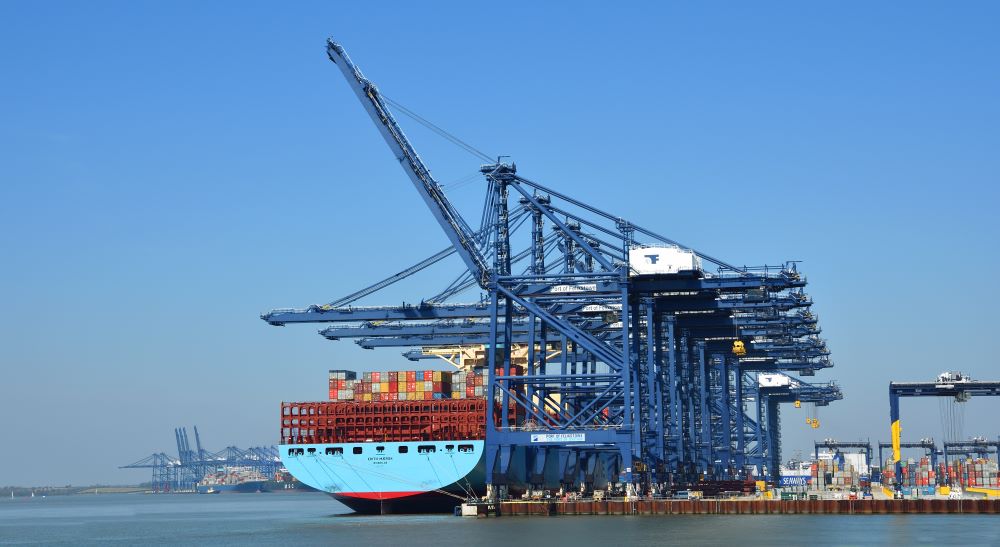
The government is looking to strengthen the UK’s east coast ports and reduce its reliance on the port of Calais due to its “tendency for industrial action.”
A government official said the UK’s aim is to bolster trade resilience, after a reliance on imports was highlighted in both the preparations for Brexit and the response to the Covid-19 crisis, the Financial Times reports.
The strategy would lead to an increase in capacity at ports such as Felixstowe and Harwich and could see a rise in imports from the Netherlands and Belgium as a result.
“We want to see all our ports playing their part,” the official said.
Roll-on, Roll-off
The government would also look to reduce the UK’s reliance on the port of Dover for ‘roll-on, roll-off’ – also known as ‘Ro-Ro’ – transportation.
‘Ro-Ro’ ferries allow for wheeled cargo carriers – such as trucks and vans – to drive on and off seamlessly and are vital for the quick transportation of perishable goods, including many food items.
Dover is currently a vital port for such traffic, handling ferries carrying 10,000 trucks on a busy day.
Returning traffic
George Baker, founder of customs services provider George Baker Shipping, told the Daily Update (11 May), that the government’s strategy could pave a return to pre-eminence for ports in the region.
He said Harwich port used to be a “highly significant port for the customs clearance of ‘Ro-Ro’ ferries before the removal of borders in 1993.”
He says companies such as his would consider returning to Harwich if “the infrastructure can be rebuilt to handle the potentially huge customs processing surge.”
Brexit risk
When planning for a ‘no deal Brexit’ last year, the government highlighted Calais as a potential choke point for trade into and out of Europe.
With Boris Johnson reportedly pursuing a Canada-style free trade agreement with the EU, the risk of delays at Calais remains.
Whether the UK agrees a deal or continues trade with Europe on WTO rules, exporters will be required to complete customs declarations for their goods to move into Europe.
The number of customs declarations being completed every year will increase fivefold to around 250 million, according to the Road Haulage Association (RHA).
Earlier this year, the government affirmed the RHA’s estimate that an additional 50,000 customs officials will be needed in the UK to process this increase in paperwork.
The Institute delivers regular training courses in how to complete customs declarations which can be fully funded by government grants. You can find more information about these courses here.



